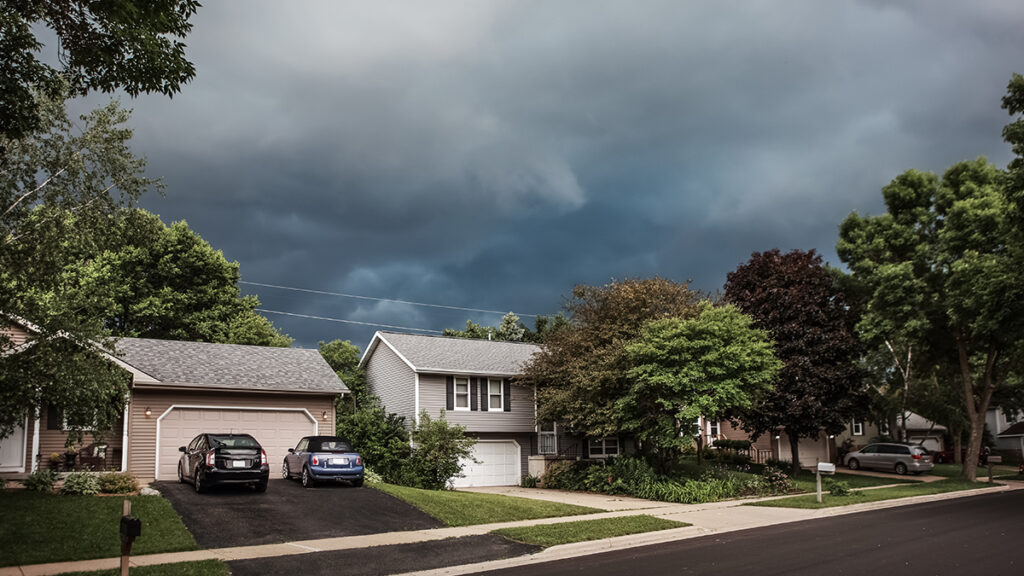Tornadoes occur throughout the year, but peak tornado season is typically spring and early summer. Even if your home and vehicles miss a direct hit, high winds and hail that accompany tornadoes pose a real danger to your valuable assets. Therefore, it is important to review both your auto insurance and homeowners policy to see if you’re adequately protected.
Depending on your state, insurance companies usually determine the required wind or hail deductibles. Coverage for this type of insurance is determined by various regulations at your state’s insurance department. Speaking with an insurance professional is a great way to see if you’re adequately covered for your area. Here are things to think about before you do:
Understand the Risk of Wind Damage
In an average year about 1,000 tornadoes are reported nationwide, according to National Oceanic and Atmospheric Administration (NOAA).1 The threat to human life is obviously the primary concern, but economic damage is also a major problem. In 2020, the havoc caused by tornadoes in the United States topped 2.5 billion dollars. The total nationwide damage frequently topped 3 billion dollars during the past two decades. One year it reached over 9 billion.2
Check your Homeowners Policy’s Windstorm Deductible
If you’re nervous about tornado season and possible damage to your home, the first thing to pay attention to is whether your homeowner’s policy covers windstorm damage caused by tornadoes and what your windstorm deductible is. A windstorm deductible can be a flat dollar amount or a certain percentage of your home’s insured value.
What “triggers” your windstorm deductible may depend upon the requirements of the state your insured property is located in and the terms of your insurance policy. In certain states, insurers are required to provide a clear explanation on what triggers the windstorm deductible. 3
Look at Your Vehicle’s Comprehensive Coverage
Comprehensive coverage usually provides protection against wind-related damage to a vehicle during a tornado. If you finance or lease a vehicle, the lender or leasing company often require comprehensive coverage up to certain limits. Comprehensive coverage doesn’t always cover all possible damages caused by tornadoes.4
Understand the Dangers of Hail
More than 6.2 million properties in the U.S. were affected by one or more damaging hailstorms in 2020, according to Verisk, a data analytics company that assesses insurance risk.4 A severe thunderstorm typically drops hail that ranges between 1 to 1.75 inches in diameter, about the size of a quarter and golf ball, respectively. But hailstones can get much bigger than that: grapefruit (4½ inches) sized hail have been observed with a fall speed up to 72 mph, according to the National Oceanic and Atmospheric Administration’s (NOAA) National Severe Storms Laboratory.5
Review your Homeowners Policy’s Hail Coverage and Deductible Terms
Depending on where you live, homeowners insurance often covers hail damage to your roof and other parts of your home. But insurance policies in regions with high risk are more likely to include certain restrictions or exclusions to their hail damage coverage. Therefore, you should review your policy to learn the types and amount of coverage it provides for damage caused by hail.
Update Your Auto Policy’s Comprehensive Coverage
As with wind-related damage, carrying comprehensive automobile coverage can help pay for repairs or replace your car if it’s damaged by a covered peril other than collision, like hail. Your car can easily be totaled by hail if the damage is extensive and worth more than your vehicle’s value.7
Who is Answer Financial?
Questioning if your valuables are adequately covered before tornado season begins? The best way to ensure your home and cars have the right coverages and deductibles for your needs is to contact the insurance experts here at Answer Financial. We’re ready to review your current policies over the phone today at 1-800-258-5101 . There’s a chance you could even save money while you’re at it! You can also visit our website to use our insurance comparison tools and quickly compare rates and customize coverages from top-rated companies.
